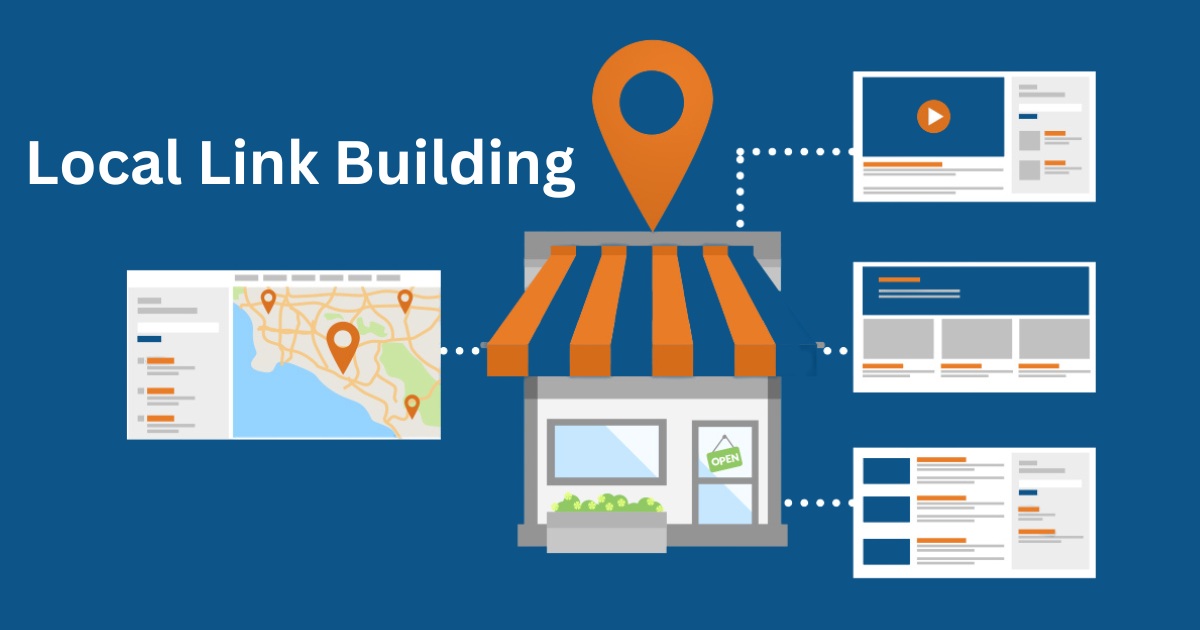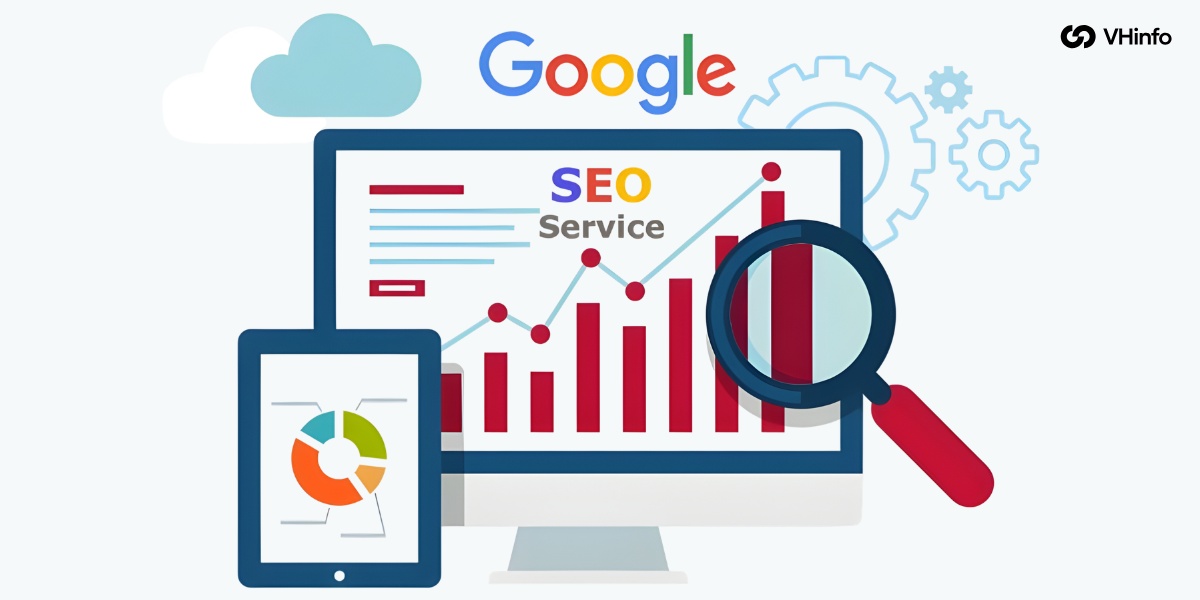As a small business owner, you understand the importance of attracting local customers to your business. One effective way to improve your local search engine rankings and increase your online visibility is through local link building.
In this comprehensive guide, we’ll dive into the world of local link building, exploring its benefits, strategies, and best practices to help you boost your local SEO efforts.
What is Local Link Building?

Local link building is the process of acquiring backlinks from websites that are relevant to your local area or industry. These links serve as a vote of confidence, signaling to search engines that your website is a valuable resource for local users.
Building high-quality local links can improve your website’s authority, relevance, and ultimately, its ranking in local search results.
How Many Local Links Do I Need?

The number of local links you need depends on various factors, such as your industry, competition, and target keywords. However, it’s important to focus on quality over quantity to enhance your local relevance, as backlinks are an important ranking factor.
A few high-quality, relevant local site links can be more beneficial than a large number of low-quality or irrelevant links. Aim to build a diverse and natural link profile over time.
How to Build Local Links?

To build local links, follow these steps:
- Get Links From Other Ranking Sites: One effective strategy is to identify websites that already rank well for your target local keywords and try to obtain links from them. These sites have already established their relevance and authority in your local market, making their links valuable for your website.
- Get Links Your Competitors Have: Analyze your competitors’ backlink profiles to identify local websites that link to them. If these websites are willing to link to your competitors, they may also be open to linking to your business if you offer valuable content or resources.
- Reclaim Lost Links: Over time, you may lose backlinks due to website changes, broken links, or other issues. Regularly monitor your backlink profile and reach out to websites that previously linked to you, requesting them to restore the links.
- Create Locally Relevant Content: Develop content that is specific to your local area, such as guides, event listings, or local news. This type of content is more likely to attract links from other local websites and blogs.
- Get Local Citations: Local citations are online mentions of your business’s name, address, and phone number (NAP) on directories, review sites, and other local platforms. Consistent citations help establish your business’s credibility and can often include links back to your website.
- Pursue Other Local Link Opportunities: Look for local link opportunities such as sponsoring local events, partnering with local charities, or contributing to local publications. These activities can help you build relationships within your community while earning valuable local links.
- Claim Unlinked Mentions: Monitor the web for mentions of your business that don’t include a link to your website. Reach out to these websites and request that they add a link to your site.
- Buy Companies, Or At Least Their Websites: In some cases, you may have the opportunity to acquire a local business or website that already has a strong backlink profile. By purchasing these assets, you can inherit their link equity and boost your local SEO efforts.
- Add Internal Links: Don’t forget the power of internal linking. Ensure that your website has a clear structure and that relevant pages are linked to each other. This helps search engines understand your site’s hierarchy and can distribute link equity throughout your site.
Is Link Building Getting Less Important For Local Businesses?

While the local SEO landscape is constantly evolving, link building remains an important factor in determining local search rankings. However, it’s important to understand the nuances and best practices of local link building to ensure that your efforts are effective and sustainable.
The Growing Complexity of Local SEO
Local SEO has become increasingly complex, with factors such as Google My Business listings, local citations, and user reviews playing a significant role in local search rankings. However, backlinks continue to be a strong signal of a website’s authority and relevance.
No Follow Vs. Do Follow Links For Local SEO
When building local links, it’s important to understand the difference between “nofollow” and “dofollow” links. While “dofollow” links pass link equity and directly impact search rankings, “nofollow” links do not. However, “nofollow” links can still drive valuable referral traffic and help diversify your link profile.
The Role of Citations in Local SEO
Local citations, such as directory listings and online mentions of your business’s NAP, play a significant role in local SEO. Consistent and accurate citations help establish your business’s credibility and can improve your visibility in local search results.
How to Find Local Link Building Opportunities?

To create an effective local link building strategy, you need to identify relevant link opportunities in your local market.
Here are some ways to find local link-building opportunities:
- Local Business Directories: Submit your business to local directories and ensure that your NAP information is consistent across all listings. Many directories allow you to include a link to your website.
- Localized Blogger Outreach: Identify local bloggers and influencers in your industry and reach out to them for collaboration opportunities, such as guest posts or product reviews.
- High-Quality Localized Content: Create valuable, localized content that attracts links naturally from other local websites and blogs. This can include local guides, event listings, or industry news.
- Checking For Local Backlinks: Use backlink analysis tools to identify local websites that already link to your competitors. Reach out to these websites and offer them a compelling reason to link to your site as well.
- Competitors’ Local Backlinks: Analyze your competitors’ backlink profiles to identify local link opportunities that you may have missed. Focus on websites that are relevant to your industry and local area.
- Local Links From Media Websites: Reach out to local media outlets, such as newspapers or radio stations, and offer to provide expert commentary or contribute content. These websites often have high domain authority and can provide valuable local links.
- Guest Posts on Local Websites and Blogs: Identify local websites and blogs that accept guest posts and contribute high-quality, relevant content. Include a link back to your website in your author bio or within the content itself.
- Relationships With Local Businesses: Build relationships with other local businesses and look for opportunities to cross-promote or collaborate. This can lead to valuable local links and referral traffic.
- HARO Link Building: Sign up for Help a Reporter Out (HARO) and respond to relevant queries from journalists and bloggers. If your contribution is used, you may receive a valuable link from a high-authority website.
- Live Community Events: Participate in local events, such as charity fundraisers or industry conferences, and look for opportunities to sponsor or contribute. These events often have websites that link back to sponsors and participants.
Our 14 Best Local Link Building Strategies

Now that you understand the importance of local link building and how to find link opportunities, let’s explore 14 effective strategies to build local links.
- Add Your Business to Local Directories: Submit your business to local directories, such as Google My Business, Yelp, and industry-specific directories. Ensure that your NAP information is consistent across all listings.
- Reach Out to Local Media: Contact local media outlets, such as newspapers, radio stations, or TV channels, and offer to provide expert commentary or contribute content related to your industry.
- Send a Press Release About Newsworthy Events: If your business has a newsworthy event or achievement, send a press release to local media outlets. If they cover the story, they may include a link back to your website.
- Become a Trusted Source: Position yourself as a local expert in your industry by consistently providing valuable insights and commentary. Local media outlets may begin to rely on you as a trusted source and link back to your website.
- Write Guest Articles: Identify local websites and blogs that accept guest posts and contribute high-quality, relevant content. Include a link back to your website in your author bio or within the content itself.
- Contact Local Bloggers: Reach out to local bloggers and influencers in your industry and offer to collaborate on content or provide expert insights. If they feature your business, they may include a link back to your website.
- Create a Local Guide: Develop a comprehensive guide to your local area, highlighting attractions, events, and businesses. This type of content is likely to attract links from other local websites and blogs.
- Sponsor Local Organizations: Sponsor local organizations, such as sports teams, charities, or community groups. These organizations often have websites that link back to their sponsors.
- Offer a Scholarship: Create a scholarship program for local students and promote it to local schools and educational organizations. These organizations may link back to your website when promoting the scholarship.
- List Your Business on Alumni Pages: If you or your employees are alumni of local schools or universities, list your business on their alumni pages. These pages often include links back to alumni-owned businesses.
- Become Active in Local Forums: Participate in local online forums and discussion groups related to your industry. Include a link to your website in your forum signature or profile.
- Offer to Provide Testimonials: Offer to provide testimonials for local businesses or products that you use and trust. These businesses may include your testimonial on their website with a link back to your site.
- Contact Your Local Tourist Board: If your business caters to tourists, contact your local tourist board and ask to be listed on their website. These websites often have high domain authority and can provide valuable local links.
- Monitor Unlinked Mentions: Use tools like Google Alerts or Mention to monitor the web for unlinked mentions of your business. Reach out to these websites and request that they add a link to your site.
Benefits of Local Link Building For Small Businesses

Local link building offers numerous benefits for small businesses looking to improve their online visibility and attract more local customers.
- Improve Brand Credibility: When other local websites link to your business, it serves as a vote of confidence in your brand’s credibility and authority. This can help establish trust with potential customers.
- Increase Brand Visibility, Foot Traffic, and Sales: Local links can drive targeted referral traffic to your website, increasing your brand’s visibility among local customers. This can lead to increased foot traffic and sales for your business.
- Improve SERP Rankings: High-quality local links can improve your website’s search engine rankings for local keywords, making it easier for potential customers to find your business online.
- Improve Brand Awareness: As more local websites link to your business, your brand awareness within the local community will grow. This can lead to increased word-of-mouth referrals and customer loyalty.
- Improve Website Domain Authority: Local links from high-authority websites can help improve your website’s overall domain authority, which can positively impact your search engine rankings.
- Build Brand Authority: Consistently providing valuable content and resources to your local community can help establish your business as a trusted authority in your industry.
- Gain Competitive Edge: Effective local link building can help your business stand out from competitors and gain a larger share of the local market.
- Build Networks for Your Business: Local link building often involves building relationships with other local businesses and organizations. These networks can lead to valuable partnerships, collaborations, and cross-promotion opportunities.
- Improves Your Engagement Rates: As your local visibility improves, you may notice an increase in engagement rates on your website and social media channels. This can lead to more customer interactions, reviews, and user-generated content.
Mistakes to Avoid When Building For Local SEO

While local link building can be highly effective, it’s important to avoid common mistakes that can harm your website’s search engine rankings and reputation.
- Buying Links: Avoid purchasing links from link farms or other low-quality websites. Search engines can detect these unnatural links and may penalize your website as a result.
- Building Links Too Fast: Building too many links too quickly can trigger search engine algorithms and raise suspicions of unnatural link building practices. Focus on building links gradually and naturally over time.
- Getting Backlinks From Unrelated Niches: Avoid obtaining links from websites that are completely unrelated to your industry or local area. These links may be seen as irrelevant and can harm your website’s relevance and authority.
- Link Spamming: Do not engage in link spamming tactics, such as leaving irrelevant comments on blogs or forums with links back to your website. These tactics can damage your website’s reputation and search engine rankings.
- Quantity Over Quality: Focus on building high-quality, relevant local links rather than simply trying to acquire as many links as possible. A few high-quality links can be more valuable than a large number of low-quality links.
Examples of Local Link Building

To illustrate the effectiveness of local link building, let’s look at a few examples:
- A local restaurant partners with a nearby farmers market to source fresh ingredients. The farmers market includes a link to the restaurant’s website on their “Partners” page.
- A local law firm sponsors a community charity event. The event organizers include a link to the law firm’s website on their “Sponsors” page and in their event promotions.
- A local fitness center contributes a guest post to a popular local health and wellness blog. The blog includes a link back to the fitness center’s website in the author bio.
FAQ’s:
Does Link Building Affect Local SEO?
Yes, link building is an important factor in local SEO. Search engines use local links as a signal of a website’s relevance and authority within a specific geographic area.
Can Local Link Building Improve My Business’s Visibility in Local Search Results?
Yes, local link building can significantly improve your business’s visibility in local search results. By acquiring high-quality local links, you can increase your website’s relevance and authority for local keywords.
How Often Should I Review and Adjust My Local Link Building Strategy?
It’s a good idea to review and adjust your local link building strategy every few months. As your business grows and your local market evolves, you may need to adapt your approach to stay competitive.
Are There Any Tools Specifically Designed For Local Link Building?
Yes, there are several tools designed to help with local link building, such as BrightLocal, Whitespark, and Moz Local. These tools can help you identify local link opportunities, monitor your local citations, and track your progress.
What is the Difference Between Local Link Building and Organic Link Building?
Local link building focuses on acquiring links from websites that are relevant to your local area or industry, while organic link building involves acquiring links from any relevant website, regardless of its location.
Conclusion
Local link building is a powerful strategy for improving your small business’s search engine rankings and increasing your online visibility.
Focusing on acquiring high-quality local links from local blogs, creating valuable localized content, and building relationships within your local community as a part of your SEO strategy can help establish your business as a trusted authority in your industry and ultimately help you get more brand mentions, drive more organic search and rank your google business profile better.
Remember not to make the common mistake of buying links or using spammy tactics when building links. Instead, focus on gradually and naturally building links over time. Having a solid local link building strategy can help you bring in more local customers, boost your brand awareness, and ultimately expand your business.



